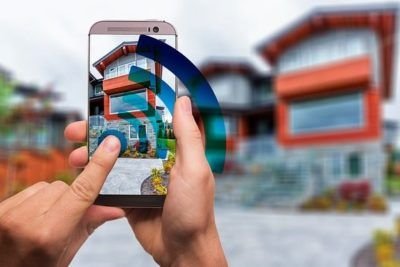
The Pros and Cons of Cell Phones: A Comprehensive Guide

Cell phones have become an essential part of our daily lives, revolutionizing the way we communicate and access information. With the advancement in technology, these devices have evolved into powerful tools with numerous features and capabilities. However, like any other technology, cell phones also come with their own set of advantages and disadvantages. In this article, we will explore the pros and cons of cell phones, helping you make an informed decision about their usage.
In this comprehensive guide, we will delve into the positive aspects of cell phones, such as their ability to keep us connected with loved ones, provide easy access to information, and enhance productivity. We will also discuss the negative aspects, including potential health risks, social isolation, and addiction. By understanding both sides of the coin, you will be better equipped to navigate the world of cell phones and make choices that align with your personal needs and values.
Index
Advantages of Cell Phones: Why They Are Essential in Today's World
Cell phones have become an indispensable part of our daily lives, providing us with numerous advantages and conveniences. In this section, we will explore why cell phones are essential in today's world.
First and foremost, cell phones enable us to stay connected with our loved ones no matter where we are. With just a few taps on the screen, we can make calls, send text messages, or even have face-to-face conversations through video calls. This constant connectivity allows us to maintain strong relationships and stay updated on the lives of our family and friends.
Additionally, cell phones have revolutionized the way we access information. With the internet at our fingertips, we can instantly search for answers to our questions, stay updated on current events, and access a vast amount of knowledge. This accessibility to information has empowered us to learn and grow, making education more accessible and enabling us to make informed decisions in various aspects of our lives.
Cell phones also provide us with a sense of security and safety. In case of emergencies, we can quickly reach out for help by dialing emergency services or contacting our loved ones. GPS technology on cell phones allows us to navigate unfamiliar places with ease, ensuring that we never get lost.
Furthermore, cell phones have transformed the way we work and conduct business. With email, messaging apps, and productivity tools, we can communicate and collaborate with colleagues and clients from anywhere in the world. This flexibility has made remote work and virtual meetings possible, increasing efficiency and productivity.
Lastly, cell phones have become a source of entertainment and relaxation. We can listen to music, watch videos, play games, and access various social media platforms to connect with others and unwind. This entertainment aspect of cell phones provides us with a much-needed escape from the stresses of everyday life.
In conclusion, the advantages of cell phones in today's world are undeniable. They keep us connected, provide access to information, enhance our safety, facilitate work, and offer entertainment. However, it is important to strike a balance and not let cell phones consume our lives entirely. Moderation and responsible usage are key to harnessing the full potential of cell phones while avoiding the pitfalls that come with excessive reliance on them.
Table: Advantages of Cell Phones
| Advantages | Description |
|---|---|
| Constant Connectivity | Stay connected with loved ones |
| Access to Information | Instant access to knowledge and resources |
| Safety and Security | Emergency communication and GPS navigation |
| Work and Business | Efficient communication and remote work capabilities |
| Entertainment | Music, videos, games, and social media |
Remember, while cell phones offer many advantages, it is important to use them responsibly and prioritize face-to-face interactions and mental well-being. Finding a healthy balance is key to fully enjoying the benefits of cell phones without letting them consume our lives.
Did you know that the average person spends around 3 hours and 15 minutes on their phone every day? It's important to take breaks and disconnect from the digital world to maintain a healthy balance in life.
Key Points to Remember:
- Cell phones keep us connected with loved ones.
- They provide instant access to information and resources.
- Cell phones enhance safety and security.
- They facilitate efficient communication and remote work.
- Cell phones offer entertainment and relaxation.
- Remember to use cell phones responsibly and find a healthy balance.
Disadvantages of Cell Phones: Understanding the Negative Impacts
While cell phones have undoubtedly revolutionized the way we communicate and access information, they also come with their fair share of disadvantages. It's important to understand the negative impacts that cell phones can have on our lives in order to use them responsibly and make informed decisions.
1. Distraction and Impaired Focus
One of the biggest downsides of cell phones is their potential to distract us from important tasks and activities. Whether it's constantly checking social media, playing games, or texting, the constant availability of entertainment and communication can significantly impair our ability to focus and be present in the moment.
Moreover, the use of cell phones while driving has become a major concern, as it can lead to accidents and loss of lives. The temptation to check notifications or respond to messages can be strong, but it's crucial to prioritize safety and avoid using cell phones while operating a vehicle.
2. Negative Impact on Social Interactions
Despite being designed to enhance communication, cell phones can actually hinder face-to-face interactions and lead to a decline in social skills. Excessive use of cell phones can cause individuals to become more isolated, less engaged in group activities, and more dependent on virtual connections rather than building meaningful relationships in person.
Additionally, the constant presence of cell phones in social settings can be seen as a sign of disrespect or disinterest, as it gives the impression that the person is more interested in their device than in the people around them.
3. Health Risks
There has been ongoing debate about the potential health risks associated with cell phone usage, particularly due to the electromagnetic radiation emitted by these devices. While research is still inconclusive, some studies suggest that prolonged exposure to cell phone radiation may have negative effects on brain health and increase the risk of certain types of cancer.
In addition, the overuse of cell phones can contribute to poor posture, eye strain, and disrupted sleep patterns. Constantly staring down at a screen can lead to neck and back pain, commonly known as "text neck," and the blue light emitted by cell phone screens can interfere with the production of melatonin, making it harder to fall asleep.
4. Privacy and Security Concerns
With the increasing reliance on cell phones for personal information storage and online transactions, privacy and security have become major concerns. Hackers and cybercriminals can exploit vulnerabilities in cell phone systems to gain access to sensitive data, including personal and financial information.
Moreover, the widespread use of social media and messaging apps has led to an increase in privacy breaches and the sharing of personal information without consent. It's important to be cautious when sharing personal information online and to regularly update security settings on your cell phone to protect your privacy.
Conclusion
While cell phones offer numerous benefits and conveniences, it's essential to be aware of the potential negative impacts they can have on our lives. By understanding and addressing these disadvantages, we can use cell phones responsibly and maintain a healthy balance between technology and our overall well-being.
Table: Disadvantages of Cell Phones
| Disadvantages | Explanation |
|---|---|
| Distraction and Impaired Focus | Cell phones can distract us from important tasks and impair our ability to focus, especially while driving. |
| Negative Impact on Social Interactions | Excessive cell phone use can hinder face-to-face interactions and lead to a decline in social skills. |
| Health Risks | There are concerns about the potential health risks associated with prolonged cell phone usage, including radiation exposure and physical discomfort. |
| Privacy and Security Concerns | Cell phones can be vulnerable to privacy breaches and security threats, putting personal information at risk. |
Related Articles:
- The Benefits of Cell Phones: How They Have Transformed Our Lives
- Tips for Responsible Cell Phone Usage: Finding Balance in the Digital Age
- Managing Cell Phone Distractions: Strategies for Staying Focused
Remember, while cell phones have their drawbacks, they are also powerful tools that can greatly enhance our lives when used responsibly. It's up to us to find the right balance and make conscious choices about how we integrate cell phones into our daily routines.
Cell Phones vs. Personal Relationships: Finding the Right Balance
Cell phones have become an integral part of our lives, revolutionizing the way we communicate and access information. However, like any other technological advancement, they come with their own set of advantages and disadvantages. In this comprehensive guide, we will explore both the pros and cons of cell phones, helping you find the right balance between staying connected and maintaining personal relationships.
The Pros of Cell Phones:
Cell phones offer numerous benefits that have greatly impacted our daily lives. Here are some of the key advantages:
- Instant Communication: With a cell phone, you can easily stay in touch with friends, family, and colleagues, no matter where they are in the world. Whether it's a phone call, text message, or video chat, you can connect with others instantly.
- Access to Information: Cell phones provide us with a wealth of information at our fingertips. From news updates to research on any topic, you can quickly search for and access information on the go.
- Emergency Situations: Cell phones have proven to be lifesavers in emergency situations. Whether it's calling for help during an accident or reporting a crime, having a cell phone can provide a sense of security and immediate assistance.
- Productivity and Convenience: Cell phones allow us to multitask and be more productive. From checking emails to managing schedules and accessing documents, they have become essential tools for work and personal tasks.
- Entertainment: Cell phones offer a wide range of entertainment options, from streaming movies and music to playing games and accessing social media. They provide a convenient source of entertainment and relaxation.
The Cons of Cell Phones:
While cell phones offer numerous benefits, they also have their drawbacks. It's important to be aware of the potential disadvantages:
- Distraction and Addiction: Cell phones can be highly addictive and lead to distractions in various aspects of life, such as work, relationships, and daily activities. Constant notifications and the urge to constantly check our phones can negatively impact our focus and productivity.
- Health Risks: There are concerns about the potential health risks associated with prolonged cell phone use. Exposure to electromagnetic radiation, eye strain, and musculoskeletal problems are among the health issues that have been raised.
- Privacy Concerns: With the increasing use of cell phones, privacy concerns have also become prominent. Personal information and data stored on cell phones can be vulnerable to hacking or unauthorized access.
- Social Disconnect: While cell phones connect us virtually, they can also lead to a sense of social disconnect. Excessive cell phone use can interfere with face-to-face interactions and diminish the quality of personal relationships.
- Overdependence: Overdependence on cell phones can hinder our problem-solving skills and creativity. Relying too heavily on technology can limit our ability to think critically and find solutions on our own.
It's important to find the right balance when it comes to cell phone usage. While they offer convenience and connectivity, it's crucial to prioritize personal relationships and be mindful of the potential negative impacts. Setting boundaries, practicing digital detox, and being present in the moment can help maintain a healthy relationship with our cell phones.
Remember, the key is to use cell phones as tools for enhancing our lives rather than allowing them to dominate our lives. By being aware of the pros and cons, we can make informed decisions and find the right balance in this digital age.
Cell Phone Usage in Schools: Should They be Allowed or Banned?
One of the biggest debates surrounding cell phone usage is whether they should be allowed or banned in schools. This topic has sparked controversy among educators, parents, and students alike. There are valid arguments on both sides, each presenting their own set of advantages and disadvantages.
In Favor of Allowing Cell Phones in Schools
Proponents of allowing cell phones in schools argue that they can be valuable educational tools. With access to the internet, students can easily look up information, conduct research, and enhance their learning experience. Additionally, cell phones can be used for educational apps, online textbooks, and interactive learning platforms.
Furthermore, allowing cell phones in schools can promote communication and collaboration among students. They can use their devices to work on group projects, share notes and resources, and stay connected with classmates. This can foster a sense of community and teamwork.
Another argument in favor of cell phones in schools is that they can enhance safety. In case of emergencies or lockdowns, students can quickly contact their parents or emergency services. Cell phones also provide a sense of security for parents, knowing that they can easily reach their children during school hours.
Against Allowing Cell Phones in Schools
On the other hand, opponents of allowing cell phones in schools raise concerns about distractions and negative impacts on academic performance. They argue that cell phones can be a major distraction for students, leading to decreased focus, decreased productivity, and even cheating.
In addition, opponents highlight the potential for cyberbullying and the spread of inappropriate content. Cell phones can provide a platform for students to engage in harmful behavior, such as cyberbullying or sharing explicit photos or videos. This raises concerns about the well-being and safety of students.
Another point raised by those against cell phone usage in schools is the digital divide. Not all students have access to the latest smartphones or reliable internet connection. Allowing cell phones in schools could further widen the educational gap between students from different socioeconomic backgrounds.
Ultimately, the decision of whether to allow or ban cell phones in schools depends on various factors, including the school's policies, the level of supervision and guidance provided, and the specific needs and resources of the students. It is important to carefully consider the potential benefits and drawbacks before making a decision.
Remember, when it comes to the debate on cell phone usage in schools, there is no one-size-fits-all solution. It is essential to weigh the pros and cons and find a balance that promotes both educational opportunities and a safe learning environment.
Frequently Asked Questions
Are cell phones harmful to our health?
There is ongoing research on the potential health risks of cell phone use, but currently, no conclusive evidence suggests that cell phones are harmful to our health.
Can cell phones cause addiction?
Yes, excessive use of cell phones can lead to addiction and dependency, similar to other forms of technology or substance abuse.
Are there any benefits to using cell phones?
Yes, cell phones provide numerous benefits, such as easy communication, access to information, and the ability to stay connected with friends and family.
Can cell phones negatively impact our relationships?
Cell phones can potentially disrupt face-to-face interactions and lead to decreased quality time with loved ones if not used mindfully.
Si leer artículos parecidos a The Pros and Cons of Cell Phones: A Comprehensive Guide puedes ver la categoría Industry and Business.





